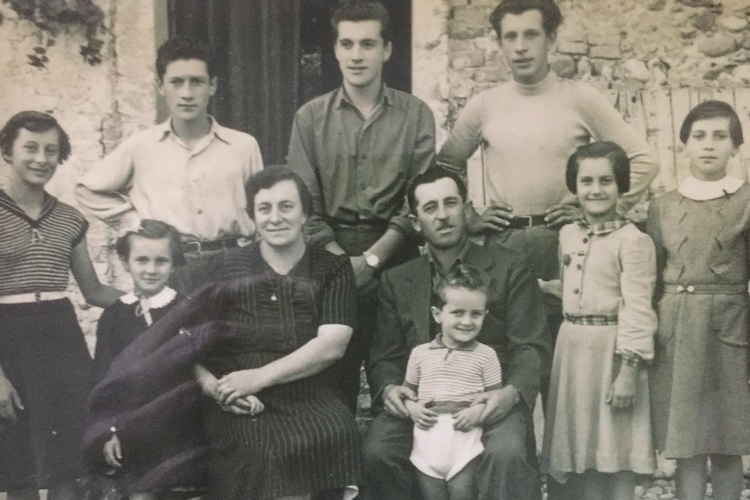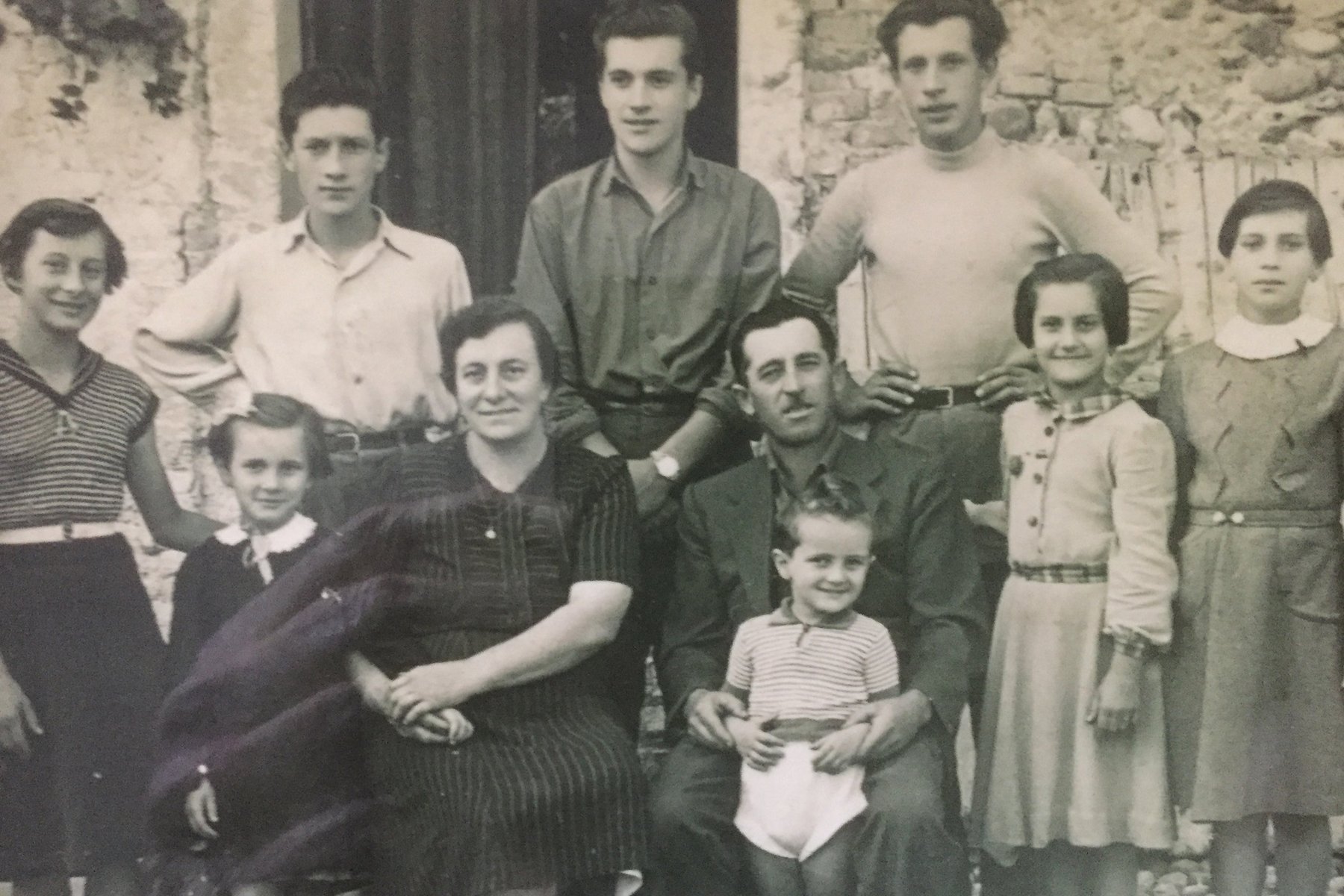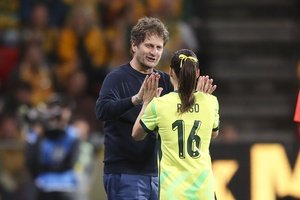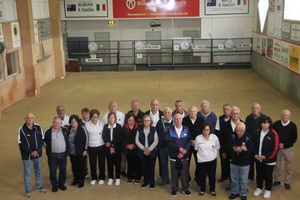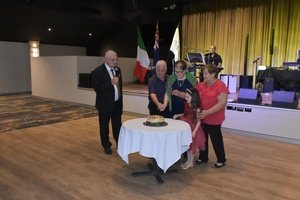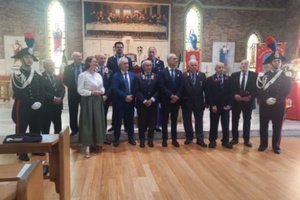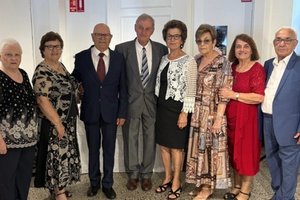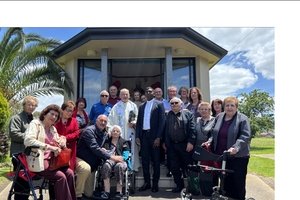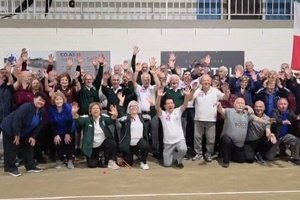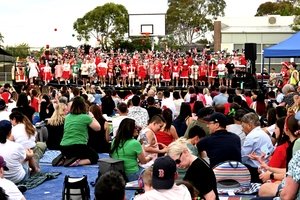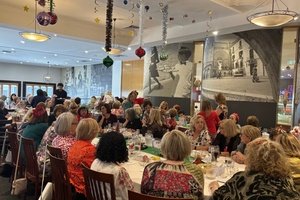A long-time member and the secretary of the Furlan Club in Melbourne, Martin was recently appointed as national coordinator of the eight Fogolâr Furlan clubs around Australia.
He takes on the important role at a time when there is a need to find new ways of connecting younger generations with their heritage.
“The shift away from family traditions is a critical issue for all associations around the world, regardless of the region they belong to,” Martin said.
“Therefore, we try to involve our young people in projects, always hoping that they choose to preserve the history of Friuli.”
Martin migrated to Australia from the Friulian town of Sedegliano with his family in 1959, at the age of nine.
After many decades Down Under, he has never forgotten his Friulian roots.
“Friuli was wonderful,” he said.
“There was never any heavy rainfall or snow; I remember mild weather and lots of agricultural activity.
“The Tagliamento River wasn’t far from our town and I liked cycling along it and diving into its waters.
“During the trip on the Aurelia, a chaplain on board the ship suggested that I assist him as a zaghetto, which means ‘altar boy’ in our dialect, for the preparation of Sunday lunch.
“I felt so proud, also because it was the first time I’d left my country.”
The youngest of nine children, Martin arrived in his new home and was immediately confronted with a culture vastly different from the one he was familiar with.
At the time, his brother Egilberto – an esteemed member of the local community and Knight of the Order of Merit of the Italian Republic – was in the process of founding the Fogolâr Furlan Club in Melbourne along with a few other migrants.
“As soon as I arrived, he handed me Hemingway’s book The Old Man and the Sea and told me to translate it to learn the new language and never forget Italian,” Martin recounted.
“After three months, I could already speak English.
“On the other hand, I had an Italian boy with me who was supposed to be my interpreter, but he only spoke the Abruzzese dialect, which was absolutely incomprehensible to me!”
Having saved up enough money, the family bought a house in East Hawthorn, near St Anthony’s Shrine, where Martin began his religious journey.
“In the meantime, the first Friulian community in Melbourne was beginning to blossom; we met at home, even before the establishment of the headquarters in Thornbury,” Martin said.
“My brother Egilberto always worked for his fellow Friulians.
“Every year before Christmas, he went from house to house to record hundreds of messages on a tape recorder and send them to people’s families in Italy; the recordings were then distributed by the Ente Friuli nel Mondo association in the town halls.
“It was an extraordinary idea that allowed thousands of people to hear the voices of their loved ones.”
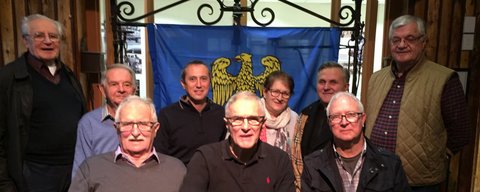
Federico Martin (centre) during a meeting of the eight Fogolâr Furlan clubs in Australia
As his community continued to take shape, Martin earned his first degree as an electrical engineer and was appointed a managerial position at Holden.
“I worked there for 37 extraordinary years, during which I was given the opportunity to study and graduate as an electronic engineer with a major in robotics,” he said.
“Over the years, I’ve travelled extensively to Japan, Brazil, Germany, Scotland and Italy, and when the company proposed hiring 30 technicians from Europe, I personally took care of the project, going to England and hiring 90 engineers.
“It was a moment of great pride in my career; at the time we were producing over 2000 engines a day.
“In 2006, however, we were supplying engines for the famous Alfa Romeo 159 and Alfa Romeo Brera.
“I went to the factory in Pomigliano d’Arco, Campania, introducing myself as ‘Fred Martin’.
“At the time, the managers were particularly suspicious of Australian engineering; when I revealed that I was actually ‘Federico Martin’, speaking in Italian, it was a great relief for them!
“An exceptional collaboration was born and we worked on two cars that were very expensive at the time.”
Unfortunately, Holden ceased the production and sales of cars in Australia in 2010, bringing an end to an iconic Australian brand.
Martin then became involved in a company which recycles organic material to produce methane and generate electricity, while dedicating every second of his free time to volunteering with The Leukaemia Foundation, driving patients to hospital appointments.
He is also the facility officer for The Melbourne Passion Play, and has always returned to his roots with the Furlan Club.
“We continue to work closely with Ente Friuli nel Mondo,” Martin concluded.
“There’s a lot of excitement of late; our seniors want to go out and have fun, while we try to involve the youth and bring Friuli to them.”

